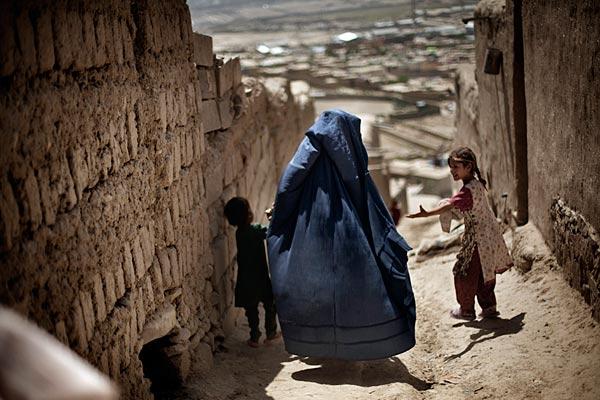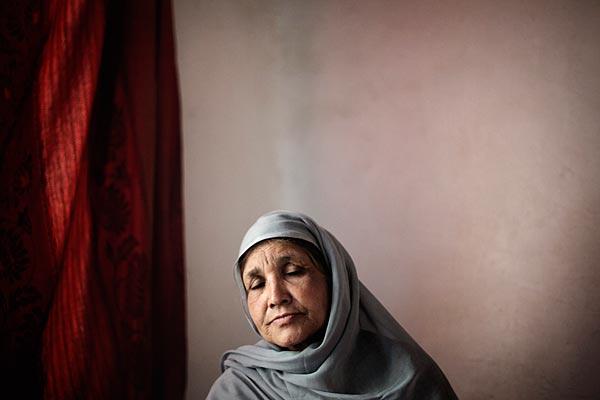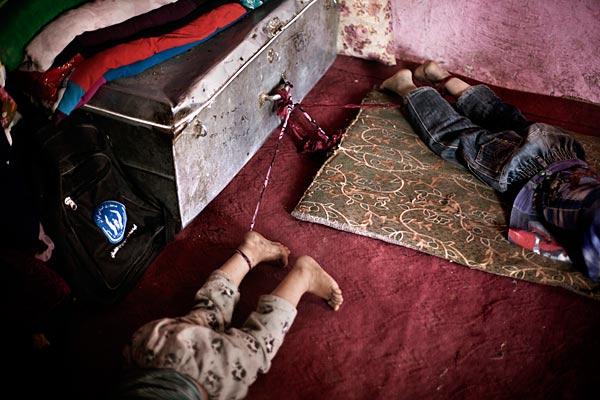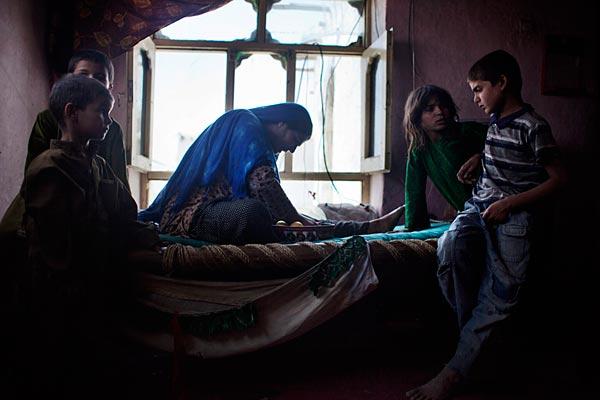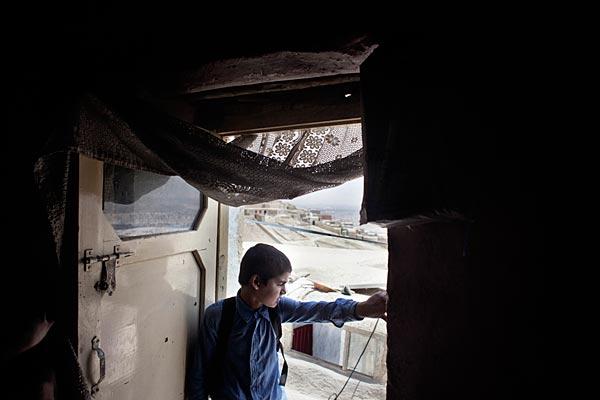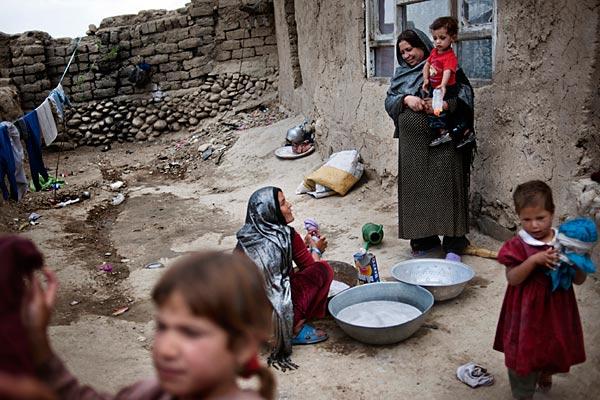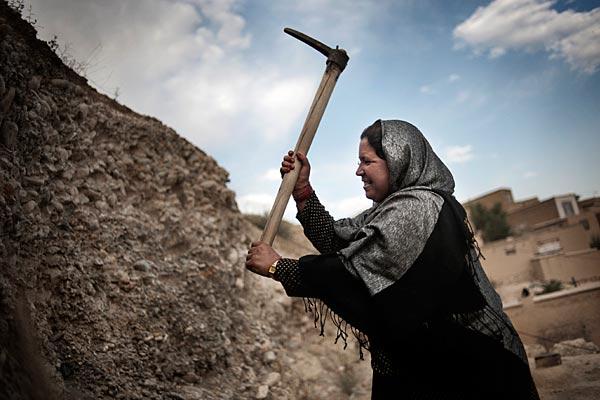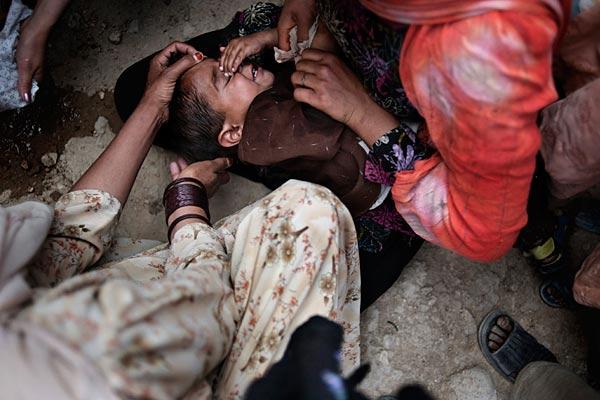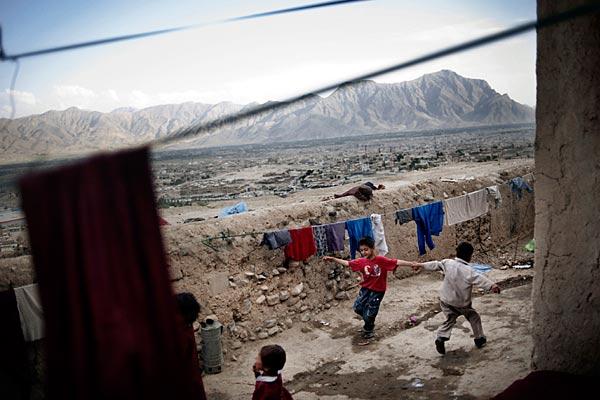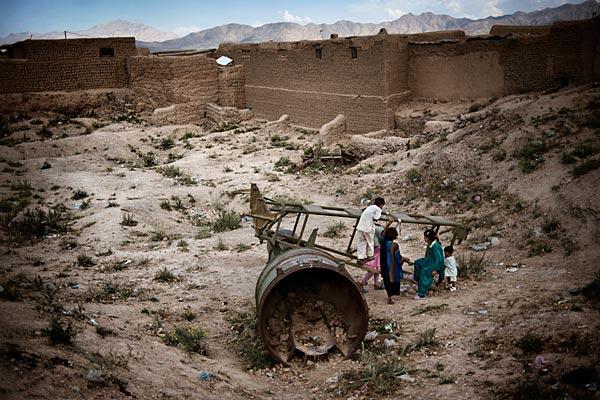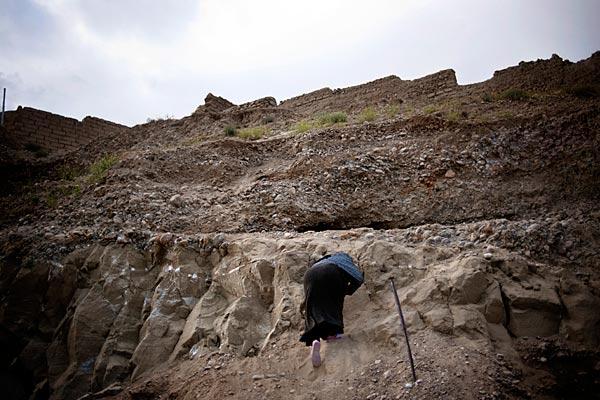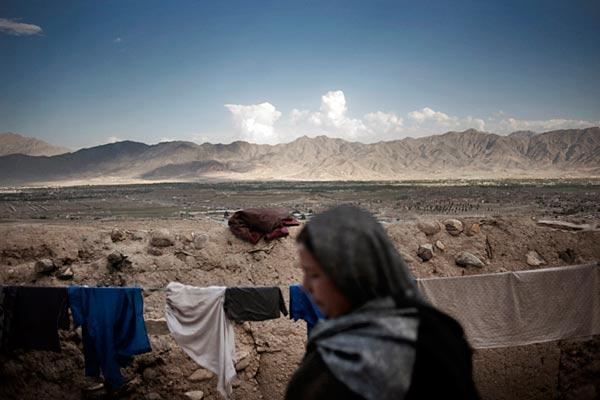The Hill That Women Built
On a hill overlooking Kabul, with little access to electricity, women have made their own houses, brick by brick, from the land beneath them. They have created what is known by Afghans as “The Hill That Women Built."
Widowed by the violence of the past 20 years, these women were left without the means to take care of their families, let alone a place to live. Some were forced into prostitution and lived in constant fear of the Taliban’s strict interpretations of Sharia law. After 2001, many widows from all over Afghanistan left the shadows of their harsh life for the rumor of a utopia in Kabul made just for them.
Now the hill is home to over a thousand women and children. The abandoned government property they live on, once an outpost for the Soviets, has been organized by women in commune fashion.
